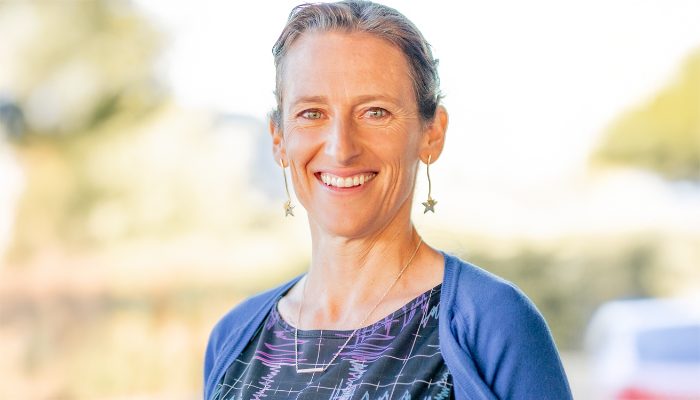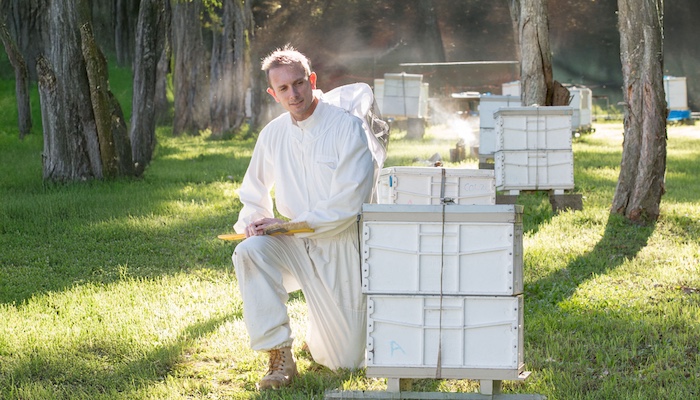The funding will support projects focused on cultural heritage and media archiving, polyurethane recycling, and solar window technology.
The Australian Research Council (ARC) Linkage Projects scheme supports Australian researchers to collaborate with industry partners and community organisations to work towards practical solutions to real-world problems. Nationally, this round of funding was awarded to 57 of 208 applications for a total sum of more than $28 million.
Deputy Vice-Chancellor (Research) Professor Sakkie Pretorius says the benefits of the ARC Linkage Projects scheme are far-reaching.
“This scheme is an opportunity to develop and strengthen our collaborative approaches to research with industry and end-users, and deliver potentially ground-breaking solutions with global impact,” he says. “With three ARC Linkage Projects awarded in this round, Macquarie University has strengthened its reputation for research excellence and innovation.
“Congratulations to those pioneering Macquarie researchers now backed by Linkage funding.”
The successful Macquarie University projects are:
The ABC, its archives and its audiences
Chief investigator: Professor Bridget Griffen-Foley, Department of Media, Communications, Creative Arts, Language and Literature
This project aims to enable deeper understanding of the role of Australia’s principal public service broadcaster in the lives of audience members across the country, and the community needs and interests that have shaped it. The project, in partnership with the Australian Broadcasting Corporation and the National Archives of Australia, will uncover and interpret paper records relating to listeners and viewers during the broadcaster’s first 50 years. Expected outcomes include an enlarged and more discoverable media archive for the benefit of researchers, industry and all Australians; an innovative audience-centred approach to the ABC’s history; and enhanced academic, archival and media collaborations.
Funding awarded: $362,322
Partner organisations: Australian Broadcasting Corporation; National Archives of Australia
“I'm so excited to be working with the ABC on making its vast paper records at the National Archives of Australia more discoverable by, and accessible to, people across Australia,” says Professor Griffen-Foley. “I hope beginning to unlock this vital part of our cultural heritage will help to educate, entertain, and maybe even surprise Australians as the ABC builds towards its centenary in 2032.”
Flipping the mattress: infinite polyurethane recycling by synthetic biology
Chief investigator: Associate Professor Amy Cain, School of Natural Sciences
Investigators: Distinguished Professor Ian Paulsen; Professor Colin Jackson (ANU); Professor Luke Connal (ANU); Dr Jeremy Nugent (Samsara Eco); Dr Haritha Reddy Chileveru (Samsara Eco)
Australia is covered in billions of tonnes of plastic and yet less than 10 per cent is recycled today. Polyurethane (PU) is ubiquitous in our lives, from lacquer coatings and elastane clothing to durable foam padding in car seats, cushions and mattresses. There are currently few avenues for PU recycling and much ends up in landfill. A single mattress, for example, produces 15-20 kilograms of PU foam waste. Luckily, biodegradation of PU can occur naturally via various microbial means and from insects, such as Galleria mellonella larvae. The aim of this research project is to understand plastic biodegradation and translate nature’s solutions into flexible and efficient synthetic enzyme technologies that can sustainably recycle commonly used PU foams.
Funding awarded: $674,004
Partner organisations: Samsara Eco Pty Limited
“Some of our biggest problems are our most complicated,” says Associate Professor Cain. “It is really tricky to study this kind of material, but this study will bring together top polymer chemists, entomologists, molecular biologists, synthetic biologists as well as the company, Samsara, which is such an amazing company. They have such an amazing technology and will truly make a difference to tackling plastic waste.”
Highly efficient solar window technology enabled by quantum dots
Chief investigator: Professor Shujuan Huang, School of Engineering
Investigators: Dr Robert Patterson (UNSW); Dr David Payne, School of Engineering; Dr Mikhail Vasiliev (ClearVue Technologies); Mr Victor Rosenberg (ClearVue Technologies)
The transition to zero-greenhouse gas emitting buildings is hindered by the lack of efficient energy-generating building components with good aesthetics. This project will develop integrated solar windows that can effectively convert the facades of urban buildings into energy-generation sites. This will be enabled by outstanding light emission efficiencies of our nanomaterials (more than 90 per cent), accompanied by our advanced light-guiding strategies and innovative photovoltaic (PV) cell integration. This next-generation technology can reduce the electricity cost and increase renewable energy adoption, placing Australia in a competitive position in the billion-dollar building integrated PV market while also contributing to decarbonising electricity generation.
Funding awarded: $566,000
Partner organisation: ClearVue Technologies Limited
"I have been collaborating with ClearVue for a few years now and it has been a pleasure and an inspiration to work together to unlock the potential of quantum dot technology," says Professor Huang. "This funding will allow our partnership to expand into solar window development, which will transform our building exteriors into clean electricity-generation sites. This is low-cost and scalable technology, and will revolutionise the building integrated photovoltaic industry, not just in Australia but globally."
For more information on Round 2 of Linkage Projects 2022, click here.



